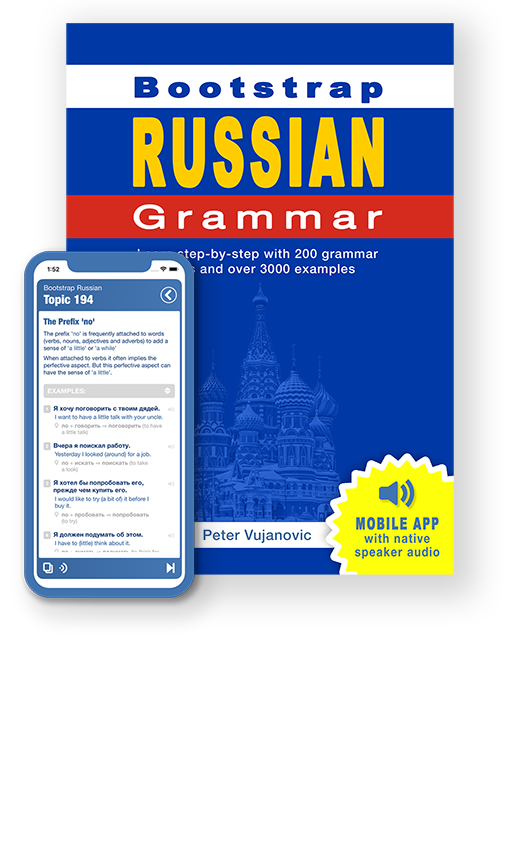Russian grammar - Adverbs of manner |
|||
|
|||
Adverbs are the words that tell us the how, when, where, in what direction (etc.) verbs are performed. Adverbs that describe how a verb is performed are called 'adverbs of manner'. In Russian many 'adverbs of manner' are formed from adjectives as follows: • хороший (good) ⇒ хорошо (well) • плохой (bad) ⇒ плохо (badly) • быстрый (fast) ⇒ быстро (quickly) • медленный (slow) ⇒ медленно (slow) In addition to these there are many other adverbs of manner that are unrelated to an adjective. These will be covered in a later topic. Finally, unlike in English adverbs in Russian can appear almost anywhere in a sentence. |
| Examples: | |
|
Хорошая девочка делает это хорошо.
The good girl does it well.
|
|
|
Плохой мальчик делает это плохо.
The bad boy does it badly.
|
|
|
Быстрая команда делает это быстро.
The fast team does it quickly.
|
|
|
Медленный трактор делает это медленно.
The slow tractor does it slowly.
|
|
|
Тихая лиса делает это тихо.
The quiet fox does it quietly.
|
|
|
Это лёгкая работа. Он делает это легко.
It is a light (easy) job. He is doing it easily.
|
|
|
Мы делаем это правильно?
Are we doing it correctly?
|
|
|
Она делает это бесплатно.
She is doing it for free.
|
|
|
Они делают это осторожно.
They do it carefully.
|
|
|
Я делаю это особенно хорошо.
I do that especially well.
|
|
|
Они делают это случайно.
They are doing it accidentally.
|
|
|
Вы это делаете напрасно.
You (formal) are doing it needlessly (in vain).
|
|
 |
|



